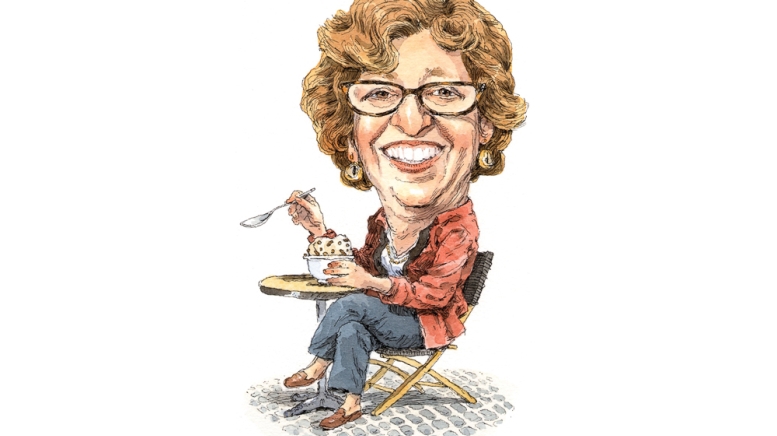Notable: President of Cornell since April 2017; expert in artificial intelligence, natural-language processing and automated planning
Career: Professor, dean, vice provost, provost and EVP, University of Michigan, 2000-16; professor, University of Pittsburgh, 1991-2000; technical staffer at Silicon Valley research institute SRI International, 1985-92
Education: A.B., linguistics (Phi Beta Kappa); M.S.E., computer and information science, University of Pennsylvania, 1984; Ph.D., computer and information science, UPenn, 1986
Personal: Married to Ken Gottschlich; mother of Anna, 29, and Nicholas, 24
“The most important work done in the university is done by the faculty.”
“I always loved academia and I always loved research, so as early as Dartmouth I considered being a faculty member. Being an administrator wasn’t in my wildest visions of the future.”
“Anthropology professor Hoyt Alverson taught me to color outside the lines. When I told him I wanted to do a dual major in math and anthropology, he suggested linguistics even though there was no department: ‘You think very formally like a mathematician, but you’re interested in people.’ He helped me design a major. He made me feel I could be taken seriously as a scholar.”
“I found the ratio of men to women at Dartmouth very awkward in the 1970s, but when I went on to computer science, where the ratio was 10 to 1, being able to navigate had a profound effect on my life.”
“As I moved up in administration, I found I could support a lot of people in achieving what they wanted—faculty in doing the kind of research and teaching they wanted, students in recognizing their educational dreams. I could even support the staff in their careers.”
“When I became the vice provost at Michigan, my dad said, ‘You’re an academic. You’re going to run a multi-billion-dollar budget?’ I said, ‘That’s the point. Managing a budget is all about resource allocation, and it’s all about investing in those areas of the academy that are most important. That’s what I know how to do.’ ”
“One of my biggest challenges is that I am terrible at recognizing faces. I drive my husband crazy when we’re watching a movie. If somebody changes clothes, I have to ask if it’s the same person.”
“I try not to prioritize my constituencies. In the moment, you have to be listening to one or the other of them a little more closely, but you have to attend to all of them. I so appreciate it when a student or junior staffer tells me, ‘You took the time to listen to me. I took your advice and it really made a difference.’ ”
“I’m a proponent of free speech on campuses not only because I think it’s important for universities to be marketplaces of ideas, but also because history has shown us that when you try to suppress speech, it is typically the least powerful and the most marginalized people who suffer.”
“There is a lot of confusion about what is protected by free speech. Harassment and threat are not. The lines are messy and I think it’s appropriate for universities to be debating those lines.”
“College rankings are pernicious. They reward behavior that is not in the best interest of universities. For example, 10 percent of the U.S. News & World Report best college ranking is based on expenditures per student. If you try to do the right thing and drive down your costs, you’re penalized in the ranking.”
“Every Cornell president gets to create a special ice cream at Cornell Dairy that is served at their inauguration. Mine was Martha’s Bits and Bytes: French vanilla with a banana swirl through it, bite-size brownie pieces and little white chocolate bits.”
“I love what I’m doing. There is absolutely nothing like a typical day, and that’s one of the things that makes this job so fun and rewarding.”
Illustration by John Cuneo




